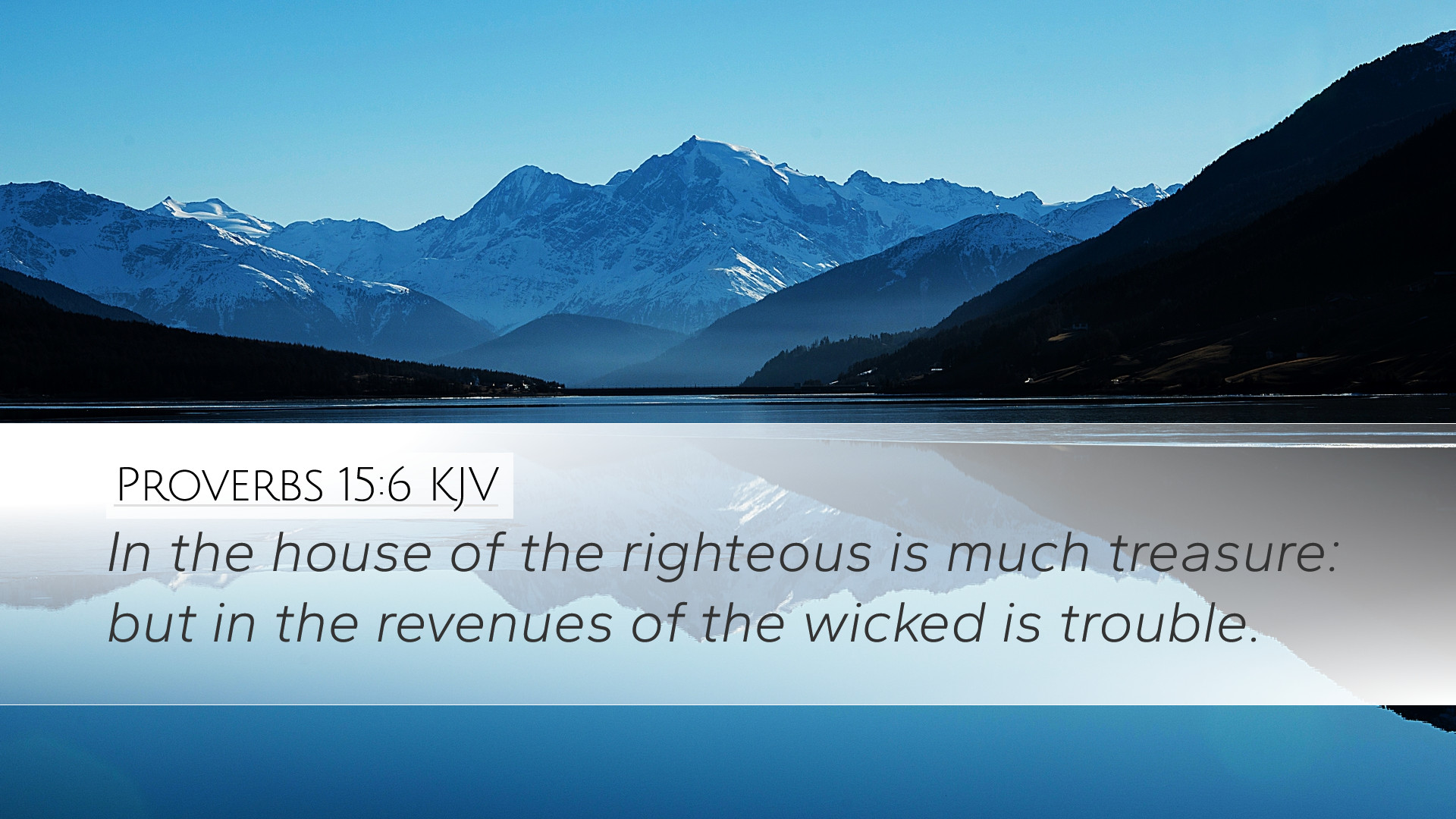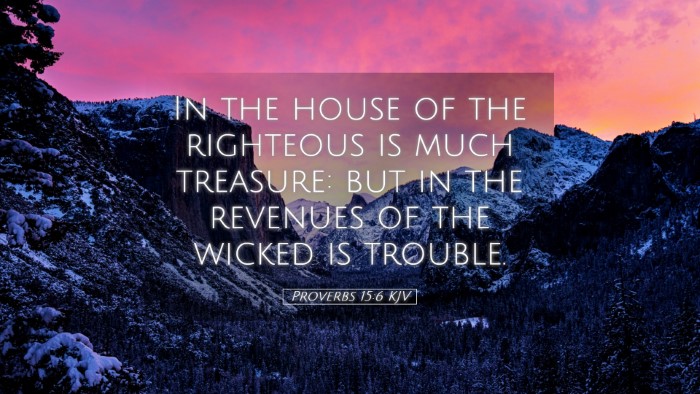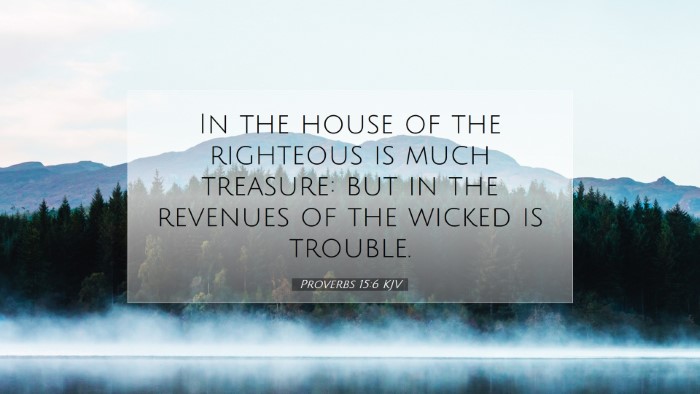Commentary on Proverbs 15:6
Proverbs 15:6 states: "In the house of the righteous is much treasure: but in the revenues of the wicked is trouble." This verse contrasts two distinct households, that of the righteous and that of the wicked, and their respective outcomes.
Overview
This passage emphasizes the value of righteousness and its consequent blessings, contrasting it starkly with the consequences of wickedness. The righteousness referred to is not merely an external adherence to moral law but also a heartfelt devotion to God.
Insights from Commentators
-
Matthew Henry:
Henry emphasizes the notion that true treasure in a household derives from integrity and godliness. He notes that wealth gathered through righteous living is not just material but spiritual, referring to peace, joy, and harmony within the home.
-
Albert Barnes:
Barnes highlights that the term "treasure" reflects both material wealth and spiritual richness. He recognizes that a family characterized by righteousness experiences tranquility and satisfaction, while the gains of the wicked are accompanied by anxiety and strife.
-
Adam Clarke:
Clarke interprets the "house of the righteous" as a metaphor for the general condition of a life lived in accordance with God’s will. He points out that the “revenue of the wicked” signifies ill-gotten gains that, although they may seem profitable, ultimately lead to destruction.
Theological Implications
This verse encapsulates a broader theological theme found throughout Proverbs: the tension between righteousness and wickedness. It demonstrates that faithfulness and integrity yield enduring rewards while deceit and immorality culminate in hardship.
Practical Applications
For pastors and spiritual leaders, this verse serves as a reminder of the importance of cultivating righteousness both personally and within their communities. The rich blessings promised to the righteous can be an encouraging message to guide congregants in their daily lives.
Students and scholars might reflect on the implications this verse has for ethical living in their pursuits—be it in business or personal relationships. The contrast presented here can act as a litmus test for the integrity of one’s actions.
Reflections on Righteousness
Righteousness, as depicted in this verse, encompasses faithful stewardship, equitable treatment of others, and loyalty to God. The Scriptures consistently connect righteousness with divine favor and blessing. The examination of one's heart and conduct against the standard of God’s Word is essential.
Consequences of Wickedness
The stark warning against wickedness effectively underscores the inevitable troubles that follow immoral actions. Barns elucidates that while the seduction of wealth gained through deceit may seem attractive, it invariably leads to spiritual barrenness and societal discord.
Conclusion
Proverbs 15:6 stands as a profound testament to the dichotomy between righteousness and wickedness—it is both a call to righteous living and a somber reminder of the inevitable consequences of evil. For theologians and Bible scholars, this verse is a rich field for exploration of the nature of God’s justice and mercy in rewarding the righteous while addressing the pitfalls of sin.


